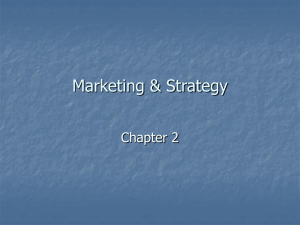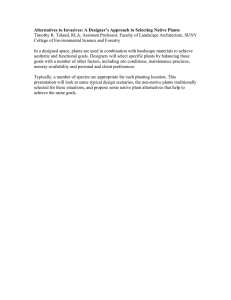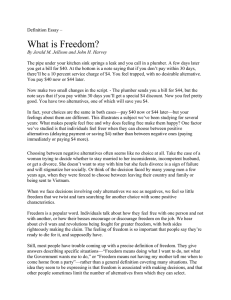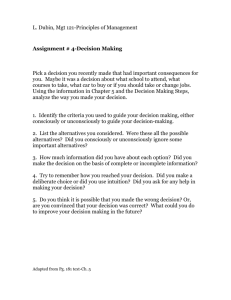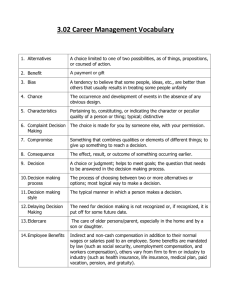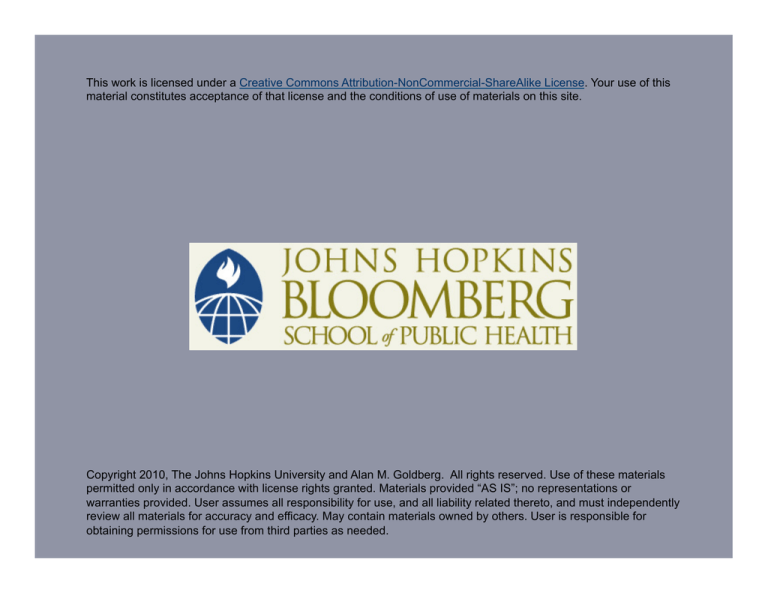
This work is licensed under a Creative Commons Attribution-NonCommercial-ShareAlike License. Your use of this
material constitutes acceptance of that license and the conditions of use of materials on this site.
Copyright 2010, The Johns Hopkins University and Alan M. Goldberg. All rights reserved. Use of these materials
permitted only in accordance with license rights granted. Materials provided “AS IS”; no representations or
warranties provided. User assumes all responsibility for use, and all liability related thereto, and must independently
review all materials for accuracy and efficacy. May contain materials owned by others. User is responsible for
obtaining permissions for use from third parties as needed.
Section C
The OECD, Japan, and Worldwide Successes of
Alternatives
OECD
Test Guidelines Program
3
Japan
Memorial service
- http://aboundlessethic.com/?p=7
Video: Animal Memorial Service, Tokyo, Japan
- http://www.youtube.com/watch?v=Wdl9rsP7ZuI
4
Three Rs Centers—More Than 20 Centers Worldwide
ANZCCART (Australian and New Zealand Council for the Care of Animals in Research and
Teaching) ♦ CAAT (the Johns Hopkins Center for Alternatives to Animal Testing) [USA] ♦
CCAC (Canadian Council on Animal Care) ♦ ECOPA (European Consensus-Platform for
Alternatives) ♦ ECVAM (European Centre for the Validation of Alternative Methods) ♦
EPAA (European Partnership for Alternative Approaches to Animal Testing) ♦ EURCA
(European Resource Centre for Alternatives in Higher Education) ♦ FRAME (Fund for the
Replacement of Animals in Medical Experiments) [UK] ♦ REMA (Spanish National Platform
on Alternatives) ♦ I-CARE (International Centre for Alternatives in Research and
Education) [India] ♦ ICCVAM/NICEATM (Interagency Coordinating Committee for the
Validations of Alternative Methods/NICEATM (NTP Interagency Center for the Evaluation of
Alternative Toxicological Methods) [USA] ♦ ILAR (Institute for Laboratory Animal Research)
[USA] ♦ JaCVAM (Japanese Center for the Validation of Alternative Methods) ♦ Korean
Society of Alternatives to Animal Experiments ♦ NC3Rs (National Centre for the
Replacement, Refinement and Reduction of Animals in Research) [UK] ♦ NCA (Netherlands
Centre for Alternatives to Animal Use) ♦ Norwegian Reference Centre for Laboratory
Animal Science and Alternatives/Norecopa (Norwegian National Platform for Alternatives)
♦ Prince Laurent Foundation [Belgium] ♦ ZEBET (Centre for Documentation and
Evaluation of Alternative Methods to Animal Experiments) [Germany]
5
Three Rs Centers
ANZCCART (Australian and New Zealand Council for
the Care of Animals in Research and Teaching)
http://www.adelaide.edu.au/ANZCCART/
CAAT (the Johns Hopkins Center for Alternatives to
Animal Testing) [USA] http://caat.jhsph.edu
CCAC (Canadian Council on Animal Care) http://
www.ccac.ca/
ECOPA (European Consensus-Platform for
Alternatives) http://www.ecopa.eu/
ECVAM (European Centre for the Validation of
Alternative Methods) http://ecvam.jrc.cec.eu.int/
ICCVAM/NICEATM (Interagency Coordinating
Committee for the Validations of Alternative
Methods/NICEATM) [USA] http://
iccvam.niehs.nih.gov/
ILAR (Institute for Laboratory Animal Research)
[USA] http://dels.nas.edu/ilar_n/ilarhome/
JaCVAM (Japanese Center for the Validation of
Alternative Methods) http://www.nihs.go.jp/
english/nihs/
EPAA (European Partnership for Alternative
Approaches to Animal Testing) http://
ec.europa.eu/enterprise/epaa/
EURCA (European Resource Centre for Alternatives
in Higher Education) http://www.eurca.org/
FRAME (Fund for the Replacement of Animals in
Medical Experiments) [UK] http://
www.frame.org.uk/
REMA (Spanish National Platform on Alternatives)
http://www.remanet.net/ingles/remaingles.htm
I-CARE (International Centre for Alternatives in
Research and Education) [India] http://www.icareworldwide.org/
Korean Society of Alternatives to Animal
Experiments http://www.ksaae.org/
NC3Rs (National Centre for the Replacement,
Refinement and Reduction of Animals in Research)
[UK] http://www.nc3rs.org.uk/
NCA (Netherlands Centre for Alternatives to Animal
Use) http://www.nca-nl.org/
Norwegian Reference Centre for Laboratory Animal
Science and Alternatives/Norecopa http://
oslovet.veths.no/fag.aspx?fag=56
Prince Laurent Foundation [Belgium] http://
www.fondation-prince-laurent.be/
ZEBET (Centre for Documentation and Evaluation of
Alternative Methods to Animal Experiments)
[Germany] http://www.bfr.bund.de/cd/1591
6
Successes of Alternatives
The personal care and household goods industries are essentially out
of animal testing
In the last 20 years, almost every Nobel Prize winner used in vitro
methods and other alternative approaches—these methods are
mainstream
1985 revision to AWA and founding of AWIC and ICCVAM
7
Successes of Alternatives
NCI—screening for cancer drugs—from in vivo to in vitro
World Congress—started in 1993
Several alternative methods formally validated
Netherlands—Department of Animal, Science and Society
8
Successes of Alternatives
1. A National Toxicology Program: Roadmap for the 21st Century
- Specifically identifies the three Rs
- Cites AWA—minimizing pain and distress
- Requires training in humane science for all NTP investigators/
contractors
2. NAS: Toxicity Testing in the 21st Century
3. EPA/NIH: announcement of February 15, 2008
9
More Humane, Better Science
10

